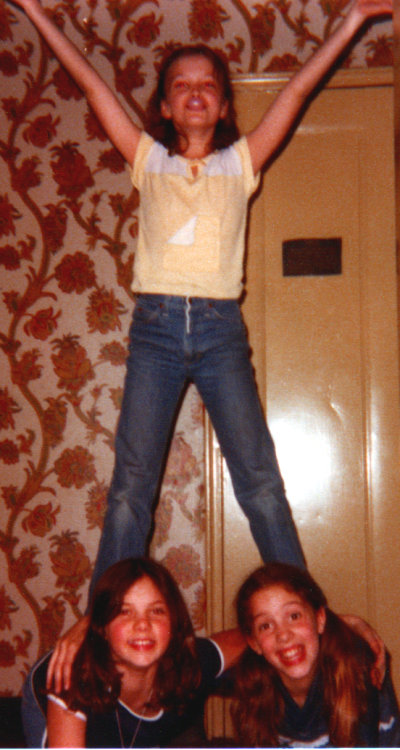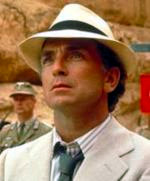Neal Stephenson’s novel Snow Crash, a cult classic, was published in 1992 and set in a mildly dystopian not-too-distant-future. (One that reality grows increasingly to resemble bit by bit.) In the story, it becomes the goal of some characters to capture and analyze a sample of a new street narcotic called “Snow Crash.” But distribution of Snow Crash is so tightly controlled that when a user buys a hit from a dealer, it comes in a dispenser with a ten-second timer, already counting down. The user is obliged to inhale it on the spot, or watch it spray uselessly into the air when the timer reaches zero. Posing as a buyer, Y.T. receives her hit and, rather than inhale it, tosses it straight up into the air. A flying machine zips in overhead, catches it, flash-freezes it in liquid helium, and disappears with it. Other devices facilitate Y.T.’s escape from the dealer’s lair. The security expert behind the operation, Mr. Ng, later says, “We now have a sample of Snow Crash, something no one else has been able to get. It is the kind of success on which reputations such as mine are constructed.”
I know how he feels. On Monday I started my new job, as a software engineer for Google, a plum position for someone like me that (despite the vast size of Google’s engineering organization) is notoriously hard to get. It was the culmination of a job-hunt process in which I was fortunate enough to have more than one Silicon Valley technology giant vying for my services, and as a result, I’m riding a confidence high.
When you have successes like that under your belt, it’s easy to be confident. But there’s a chicken-and-egg problem: to succeed in the first place, you need confidence to try things worth succeeding at.
This is something that has been weighing on my mind and Andrea’s for a while, at least since our last meeting with Jonah’s kindergarten teacher. She told us that he has the capacity to be a class leader and lacks only the confidence to step up to some challenging tasks, to stop following the pack. This critique rang true; we’d observed in Jonah a tendency when trying new things to expect he’d be unable to do them. This despite our encouragement and his obvious competence.
Where can you get the confidence you need to achieve your first successes?
Understanding this catch-22, my dad sought to instill confidence in me and my sister from a very young age. He referred to it as “vitamin C” and frequently touted its magical power to make the difficult easy. The way to have confidence, he told us again and again, was to be sure ahead of time that you could do whatever it was you were trying to do — hit a softball, ride a bike, flip a pancake. Before trying something tricky, focus your mind. See yourself accomplishing it. Then do it. If you fail, it’s not because you can’t do it — obviously, since other people can do it, so why not you? It’s only because you didn’t use enough vitamin C. Try again, and focus harder on feeling confident.
This approach worked on me and my sister, after a fashion. We grew up feeling confident and we were therefore adequately bold in the choices we made (which is, after all, the very purpose of confidence). Much later in life, though — after I had developed real confidence — I recognized my childhood version of that feeling for what it really was: bravado, the insubstantial cousin of confidence, insubstantial because it’s unfounded.
Bravado does some of the work of true confidence, but it fails you when you need it most. Worse, whereas a surfeit of confidence makes a person calm, cool, and collected, an excess of bravado produces arrogance. For I had learned that “Vitamin C” meant being sure you could do anything, and if deep down you really aren’t, then how can you convince yourself that you are — other than to tell everyone how capable you are? Other than to brag, that is.
So how did I finally develop “real” confidence? By the passage of time, mainly, during which I racked up meaningful successes once in a while, developing my skills and developing my self to the point where I’m finally satsified with who I am and what I can do. Many years ago I would have claimed to be satisfied, but I would have been wrong, and here’s how I know: I no longer feel like I have something to prove all the time. When I was younger I did, boy howdy did I.
So now I’m in a serene confidence zone, which is great for me, but what about Jonah? He’s only six. He hasn’t had decades to develop his skills or his personality. We’re back to our main question: Where can you get the confidence you need to achieve your first successes?
Until this past Sunday, I had a gimmicky answer to that question: to get real confidence, act as if you have it to begin with. Just as pretending to laugh can lead to real laughter, pretending to be confident can get you through tricky situations, producing real confidence.
For example: when I started college, I didn’t know a soul in Pittsburgh. For the first several days I was desperately lonely until finally I’d had enough of that and decided to do something about it. Spying a group of fellow freshmen chatting together — complete strangers — I pretended confidence, strode over, broke into their conversation, and made them my friends. Lifelong friends in some cases, as it turned out.
So the pretend-confidence thing worked for me on that occasion, and on a number of others. With pretend confidence I was able to accumulate enough successes to form a foundation for real confidence. And until Sunday, that’s the advice I gave whenever the subject arose of how to become confident.
But then on Sunday I saw something that made me change my mind. I had decided it was time for Jonah finally to learn to ride a two-wheeled bike. (I wrote many months ago that he already had, but it turned out to be a false alarm.) Andrea and I took him and Archer to the empty schoolyard and began giving cycling instruction. Archer lost interest pretty quickly, but Jonah gamely tried several times to balance the bike, standing on one pedal while kicking off the ground with the other foot, as if riding a scooter. He was getting visibly better, his kicking foot staying off the ground for longer and longer intervals, when he declared he was tired and would do more next time. He unbuckled his helmet.
At this point, Andrea channeled her high school self and began cheerleading. She encouraged him so insistently and so, well, cheerily that he could not resist — he refastened his helmet and did another circuit of the schoolyard, this time a little better than before. Again he told us he was done and again Andrea cheered him on to another lap, and another, and another. Finally she persuaded him to try sitting down while pedaling and letting me let go of the bike — and away he went, a little wobbly but undeniably riding a two-wheeled bike entirely on his own!
Jonah lost all trace of tiredness. He rode around and around the schoolyard with the biggest possible smile on his face, so drunk with accomplishment that when he fell and scraped up his legs, or when he rode his bike straight into a wall, he wasn’t deterred even a little bit. He just wanted to keep riding. And that’s when something about the past few months clicked into place for me:
In the time since our parent-teacher conference, Jonah has learned to read ever-more challenging books and to write a paragraph-long “book report” each week; he has started taking piano and karate lessons; and he has cultivated a new and better group of friends than the ones he had before. Each of these developments was accompanied by more or less whining from Jonah about being unable to do this or that, but these protests fell on unsympathetic ears as Andrea and I insisted that he not only could, but he must. And because we compelled him, he saw again and again that his protests were false: with a little work he could figure out a sentence full of long words on his own, he could find the right notes in a tricky piano exercise, he could learn to ride a bike in a single afternoon. And now Jonah is visibly more confident than he was just a short time ago.
So now I think the premise with which I started this article is wrong. To succeed in the first place, you don’t necessarily need confidence to try things worth succeeding at. Just as good is having someone loving, persistent, and occasionally merciless driving you to discover for yourself the amazing things you can do.


 Nerd confession: I just realized that my son Archer, who is 4, and my stepdaughter Pamela, who just turned 27, both have ages that can be expressed in the form nn — Archer is 22 and Pamela is 33. Barring a major advance in gerontology research I regret to say it is unlikely any of us will ever see 44.
Nerd confession: I just realized that my son Archer, who is 4, and my stepdaughter Pamela, who just turned 27, both have ages that can be expressed in the form nn — Archer is 22 and Pamela is 33. Barring a major advance in gerontology research I regret to say it is unlikely any of us will ever see 44. Inevitably Andrea raised the question, “Did that guy ever do anything else?” referring to Paul Freeman, the actor who turned in a memorable performance as Belloq, Indy’s Nazi-collaborating rival.
Inevitably Andrea raised the question, “Did that guy ever do anything else?” referring to Paul Freeman, the actor who turned in a memorable performance as Belloq, Indy’s Nazi-collaborating rival.